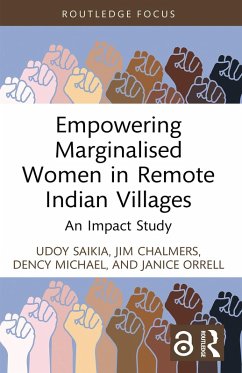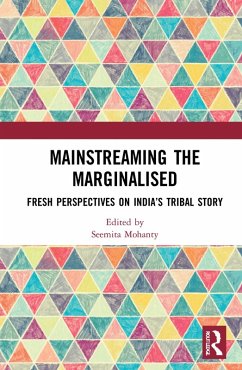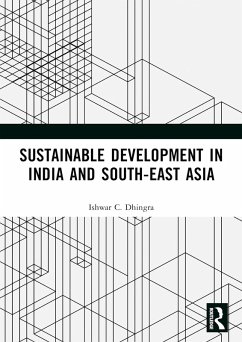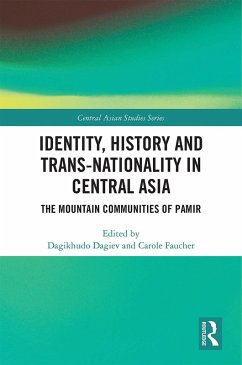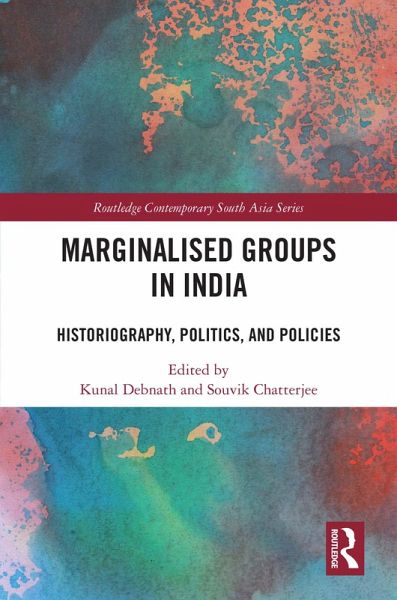
Marginalised Groups in India (eBook, ePUB)
Historiography, Politics, and Policies
Redaktion: Debnath, Kunal; Chatterjee, Souvik
Versandkostenfrei!
Sofort per Download lieferbar
42,95 €
inkl. MwSt.
Weitere Ausgaben:

PAYBACK Punkte
21 °P sammeln!
This book intersects marginality, politics, and policies by focusing on the narratives of selective marginalised groups within India.Encouraging inclusive government policies that consider the diverse identities of individuals and groups within India, this book is a systematic documentation of the lived experiences of various marginalised collectives, such as the Naths of Bengal, the De-notified Tribes of Maharashtra, the Kukis of Manipur, and the beggars. The chapters use historiography as a method to understand narratives of marginality in India, illuminating how power imbalances in Indian s...
This book intersects marginality, politics, and policies by focusing on the narratives of selective marginalised groups within India.
Encouraging inclusive government policies that consider the diverse identities of individuals and groups within India, this book is a systematic documentation of the lived experiences of various marginalised collectives, such as the Naths of Bengal, the De-notified Tribes of Maharashtra, the Kukis of Manipur, and the beggars. The chapters use historiography as a method to understand narratives of marginality in India, illuminating how power imbalances in Indian society lead to the marginalisation of specific groups, depriving them of fundamental rights and opportunities, while others enjoy privileges. The political analysis of this edited volume introspects the political dynamics that perpetuate marginalisation. It details the aspirations of various marginal groups in evolving and changing socio-political circumstances.
This book offers a deeper understanding of the intricate issues faced by marginalised groups. It will be of interest to students, academicians, and researchers in South Asian Studies, Subaltern Studies, Political Science, Sociology, Social History, and Migration/Refugee Studies.
Encouraging inclusive government policies that consider the diverse identities of individuals and groups within India, this book is a systematic documentation of the lived experiences of various marginalised collectives, such as the Naths of Bengal, the De-notified Tribes of Maharashtra, the Kukis of Manipur, and the beggars. The chapters use historiography as a method to understand narratives of marginality in India, illuminating how power imbalances in Indian society lead to the marginalisation of specific groups, depriving them of fundamental rights and opportunities, while others enjoy privileges. The political analysis of this edited volume introspects the political dynamics that perpetuate marginalisation. It details the aspirations of various marginal groups in evolving and changing socio-political circumstances.
This book offers a deeper understanding of the intricate issues faced by marginalised groups. It will be of interest to students, academicians, and researchers in South Asian Studies, Subaltern Studies, Political Science, Sociology, Social History, and Migration/Refugee Studies.
Dieser Download kann aus rechtlichen Gründen nur mit Rechnungsadresse in A, B, BG, CY, CZ, D, DK, EW, E, FIN, F, GR, HR, H, IRL, I, LT, L, LR, M, NL, PL, P, R, S, SLO, SK ausgeliefert werden.




